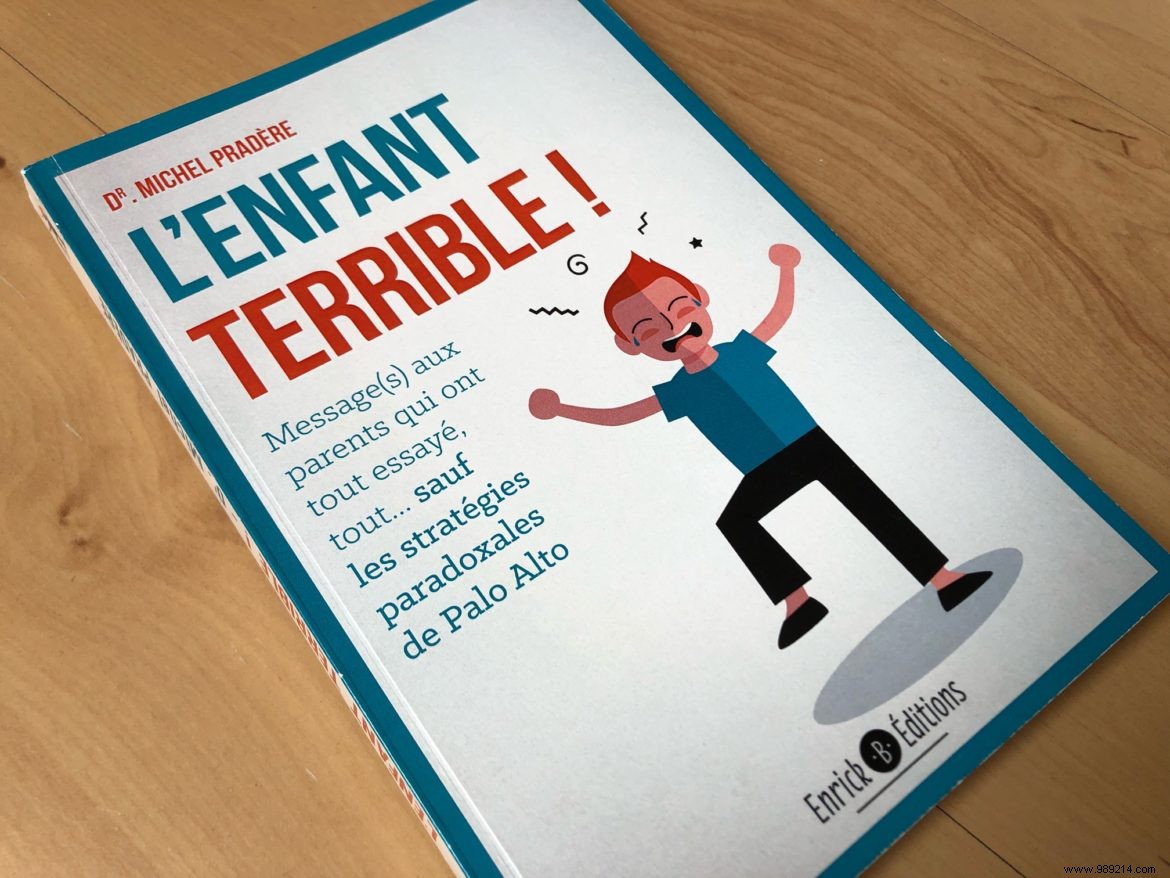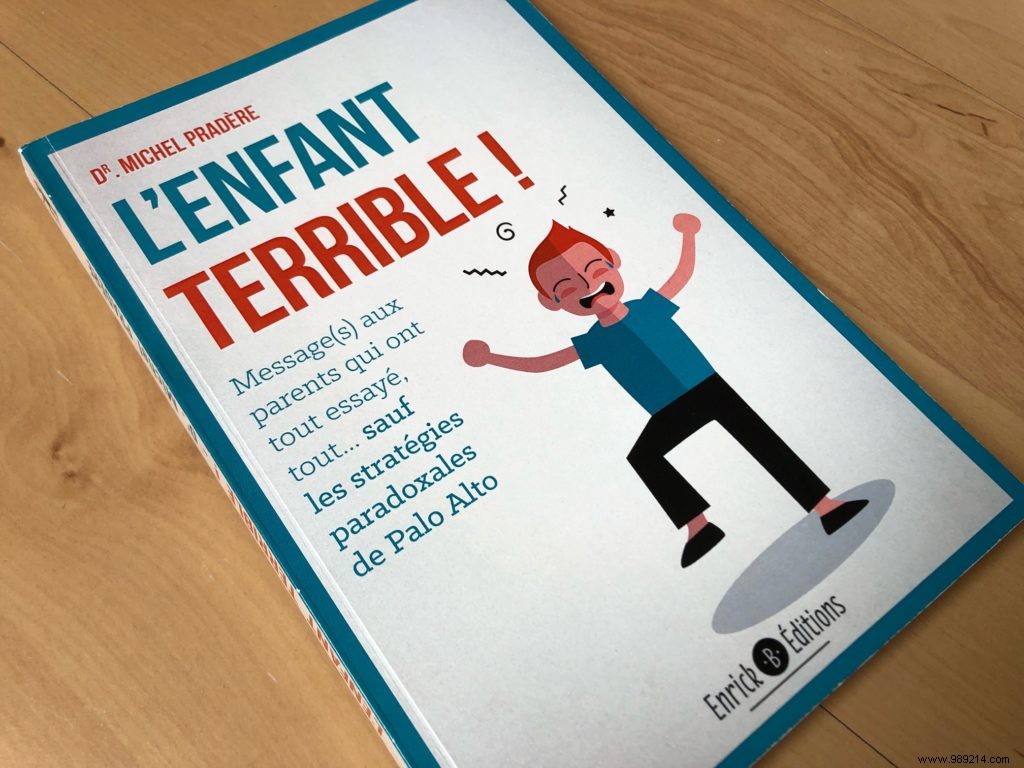
Did the title of this article appeal to you? Indeed, unless you are in the field of psychoanalysis or interested in parenting for “terrible” children, you have probably never heard of this subject.
Contents 1 The author of the book 2 Why this book? 3 Brief systemic strategic psychotherapy from the Palo Alto school 4 Our opinionThe idea of this article is to briefly share with you our opinion after reading the book “L’enfant terrible!” by Doctor Michel Pradère, published by Enrick B Editions (a printer who plants a tree for each book purchased, it's appreciable :).

The author of the book, Dr. Pradère, is an experienced psychiatrist and psychotherapist (40 years of practice) who has explored many trainings and strategies. He is a staunch defender of talking care. And we can confirm that he also masters writing perfectly, with a very elaborate writing style.
The purpose of this book is to share techniques for coping with “terrible” children. We can also read on the front cover “Message(s) to parents who have tried everything, except… the paradoxical strategies of Palo Alto”.
Clearly, the author explains in this book simple and proven techniques for parents to regain control, while helping so-called “terrible” children to get out of a role they have not ultimately chosen.
The book is also intended for teachers, educators, psychologists, psychotherapists, child psychiatrists...
Did I lose you just reading this title? This is normal.
However, behind this barbaric name hides finally a simple technique for the little rebels that "everything aggravates" (to use the expression of the author).
I put some excerpts to give you an idea of the method (only an idea, for concrete examples you will have to read the book 😉:
In practice, the idea is to get into the child's game to destabilize him and put him back on the right track without confrontation. Saying “you are right, continue”:this allows you to control, reduce your anger. Because saying no, banning, ultimately only adds fuel to the fire for a “terrible” child. As the child struggles to be assertive against you all the time, you abruptly prove him right, encouraging him to continue:
Faced with this, either the child is taken aback, because he wonders what it hides, and he no longer knows how to react. It can't claim anymore because you just approved it, and that's usually enough to fix the situation.
If he remains stubborn and does not give in, and if his stubbornness brings him unfortunate inconveniences (sanctions, deprivations), he must be left to assume them and we can remember this magic phrase:
A well-written book, full of examples from the literature and many anecdotes from the author's experience. These stories allow us to better understand and see the implementation of this educational strategy. We read throughout the pages of the many successes achieved by the author and especially by the parents and children concerned by these conflict situations.
And yet the idea is simple, go in the direction of the child, approve him in his undesirable behavior while letting him suffer the consequences via a deferred sanction.